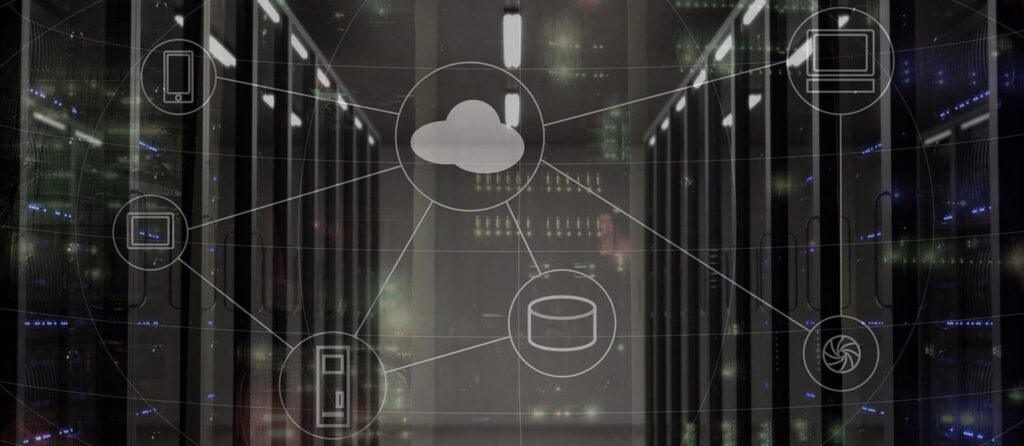Understanding the critical aspects of locating a web host that provides comprehensive DDoS protection is crucial for your online platform’s safety and stability. This FAQ shall guide you through the necessary steps and considerations applicable in your quest to find an efficient and dependable web host. By explicating in an accessible academic tone, this information carefully navigates your concerns as it brings light to potentially overwhelming and confusing terminologies and procedures. The expected outcome is for you to secure sound DDoS protection for your website, thereby ensuring continuous and safe online operations.
Understanding DDoS Attacks
What is a DDoS attack?
A Distributed Denial-of-Service (DDoS) attack is a malicious attempt to disrupt the normal functioning of a network, service, or website by overwhelming it with a flood of internet traffic. In a DDoS attack, the attacker usually exploits several computer systems and uses them as a botnet to send a huge amount of traffic to the target. The ultimate goal of this attack is to render the website or service inoperable, and attempting to overwhelm its infrastructure.
Different types of DDoS attacks
DDoS attacks come in many forms but generally fall into three categories. Volume-based attacks, protocol attacks, and application layer attacks. Volume-based attacks saturate the bandwidth of the target site and include ICMP floods or UDP floods. Protocol attacks consume actual server resources, or those of intermediate communication equipment, such as firewalls and load balancers, and are measured in packets per second. Application-layer attacks target the layer where web pages are generated on the server and delivered in response to HTTP requests.
Impact of DDoS attacks on websites
DDoS attacks can have a significant impact on websites. Besides the immediate downtime and inaccessibility to users, a DDoS attack can also result in loss of customer trust and reputation. On top of this, there is the financial toll from lost revenue and potential cost of repairing the damage.
The Need for DDoS Protection
Why is DDoS protection important?
DDoS protection is a set of measures to secure a network or service from DDoS attacks. Given the increasing frequency of such attacks, and the significant harm they can inflict, DDoS protection has become a vital necessity for every online business. It prevents downtime, safeguards data, and maintains the performance of the network or service during an attack.
Consequences of not having DDoS protection
Without DDoS protection, a network or service is vulnerable to attacks which could result in prolonged downtime, data loss, and potential reputational damage. Businesses could also incur costs associated with crisis management, troubleshooting, and system recovery.
The cost implication of DDoS attacks
DDoS attacks can be costly. Aside from the immediate loss in sales and revenue due to website downtime, companies often face sizable expenses for repairing the damage, strengthening their security infrastructure, and undertaking public relations efforts to restore their reputation.
Key Features of DDoS Protection Services
Types of DDoS protection services
Various types of protection services are available depending on the specific needs of a business. These include network-based, application-based, and cloud-based solutions. Managed DDoS protection services are also an option and provide a suite of protective measures overseen by a team of professionals.
Importance of scalability in DDoS protection
Scalability is essential in DDoS protection as it allows for growth and adaptability. As a company’s network expands, its DDoS protection should be capable of accommodating an increase in traffic and data.
Analysis and reporting features
Analysis and reporting are key features of DDoS protection services, helping your business to understand attack patterns, identify vulnerabilities, and develop proactive defense strategies. Understanding your network’s normal traffic patterns could make it easier to detect anomalies and potential threats.
Criteria for Choosing a Web host with DDoS Protection
Key features to look for in a web host
When choosing a web host with DDoS protection, you should consider several factors. Look for a host that monitors their network round the clock, possesses a robust network infrastructure, offers technical support, and has a solid reputation for uptime and reliability.
Choosing the right web hosting package
The right hosting package should provide reliable uptime, fast load times, and sufficient resources to handle your site’s traffic. Additionally, the package should include effective DDoS protection measures that are tailored to your site’s needs.
Value for money versus level of protection
While considering the cost is important, you should also evaluate the level of protection provided. A less expensive hosting plan might initially seem attractive, yet cutting costs in such a crucial area could lead to substantial losses in the future.
Top Web Hosts Offering DDoS Protection
Overview of top web hosts with DDoS protection
There is a multitude of web hosts offering DDoS protection these days, each with its own strengths and weaknesses. Some leading names in the industry include A2 Hosting, SiteGround, and InMotion Hosting, all of which are well-regarded for their robust security features.
Comparison of different web host’s DDoS protection features
Comparing the DDoS protection features among various web hosts can help you make an informed decision. Look at what types of attacks they shield against, their methods of detection and mitigation, and how promptly they can respond in the event of an attack.
Key strengths and weaknesses of each web host
Each web host has certain strengths and weaknesses. Some may excel in providing lightning-fast response times, while others might boast high-quality customer service. Conversely, some hosts may fall short in areas like scalability or technical support. A thorough evaluation of these factors will aid your decision-making process.
Reviewing Web Hosts with DDoS Protection
Importance of user reviews and testimonials
Reviews and testimonials are critical in assessing the quality of a web host’s DDoS protection. They provide insight into the experiences of others and can highlight potential issues or areas of excellence.
Trustworthy platforms for reviews
When looking at reviews, consider platforms that are known for their credibility and objectivity. Some sources to consider might be technology blogs, industry forums, and reputable third-party review sites.
Analysing and interpreting reviews
While analyzing reviews, focus on detailed and balanced feedback rather than overly positive or negative comments. Look for specifics about the host’s server performance, stability, customer support, and DDoS protection effectiveness.
Free vs Paid DDoS Protection
Comparing free and paid DDoS Protection
Free DDoS protection may provide basic defense and could be a viable option for personal sites or small businesses. However, it often lacks the advanced features found in paid services. Paid DDoS protection generally offers a comprehensive set of security measures, professional monitoring, and efficient response mechanisms, making it a more reliable choice for larger businesses and critical applications.
When to opt for free DDoS Protection
If your website attracts low traffic, deals with non-sensitive data, or operates on a tight budget, free DDoS protection might be a suitable option. However, remember that you usually get what you pay for in terms of digital security.
When to opt for paid DDoS Protection
For websites handling sensitive data, attracting high levels of traffic, or operating critical services, investing in robust paid DDoS protection is a must. It would provide a more comprehensive defense and help you avoid substantial losses due to potential attacks.
Implementing a DDoS Protection Policy
Understanding DDoS protection policy
A proper DDoS protection policy forms an integral part of any organization’s security strategy. It should outline protocols for threat detection, response procedures, and recovery measures. A dedicated team should be assigned to handle DDoS attacks according to the policy.
Steps to implementing an effective DDoS protection policy
Effective DDoS protection policy implementation begins with a thorough risk assessment. Establish clear procedures for threat detection and response. Regular drills can help identify potential gaps in your protocols and ensure that staff know their roles during an attack.
Role of employees in implementing DDoS protection
Employees play a critical role in DDoS protection. They should be aware of how DDoS attacks occur and be trained on the company’s protocols and best practices. Regular training sessions provide them with updates on the latest threats and defenses.
Maintaining DDoS Protection
Regular updates and patches
Maintaining DDoS protection involves regular system updates and patches, ensuring your defenses are equipped to tackle the latest threats. Cyber attackers are continually seeking new ways to breach security, so your protection mechanisms must evolve accordingly.
Monitoring and managing your DDoS protection
Continuous monitoring of your network traffic is essential for spotting potential DDoS attacks early. Timely detection allows for immediate action, potentially limiting the damage inflicted. Additionally, conduct routine audits of your DDoS protection measures to ensure they remain effective and up-to-date.
Addressing potential issues and risks
Effective maintenance of DDoS protection also means addressing potential issues and risks promptly. Problems can range from simple software glitches to more serious vulnerabilities that might be exploited by attackers. Regular assessments and reactionary measures can help to mitigate these risks.
Conclusion: Securing the Right Web Host with DDoS Protection
Recap on the importance of DDoS Protection
In summary, DDoS protection is essential for maintaining your online presence and safeguarding your digital assets from ever-evolving cyber threats. The correct protection measures can minimize downtime, avert potential data loss, protect your reputation, and save on possible recovery costs.
Choosing the best fitting web host
Choosing the right web host with comprehensive DDoS protection requires careful consideration. Focus on finding a provider who offers the appropriate level of protection, scaling capabilities, and other essential features your website needs for its particular situation.
Key points to remember when maintaining DDoS protection
Regularly updating, monitoring, and addressing potential issues promptly are key to maintaining effective DDoS protection. Additional factors like continuous employee training and regular audits of your protection measures should also not be overlooked. With an effective DDoS protection strategy, you can better safeguard your online presence and help ensure the continuity of your business.









